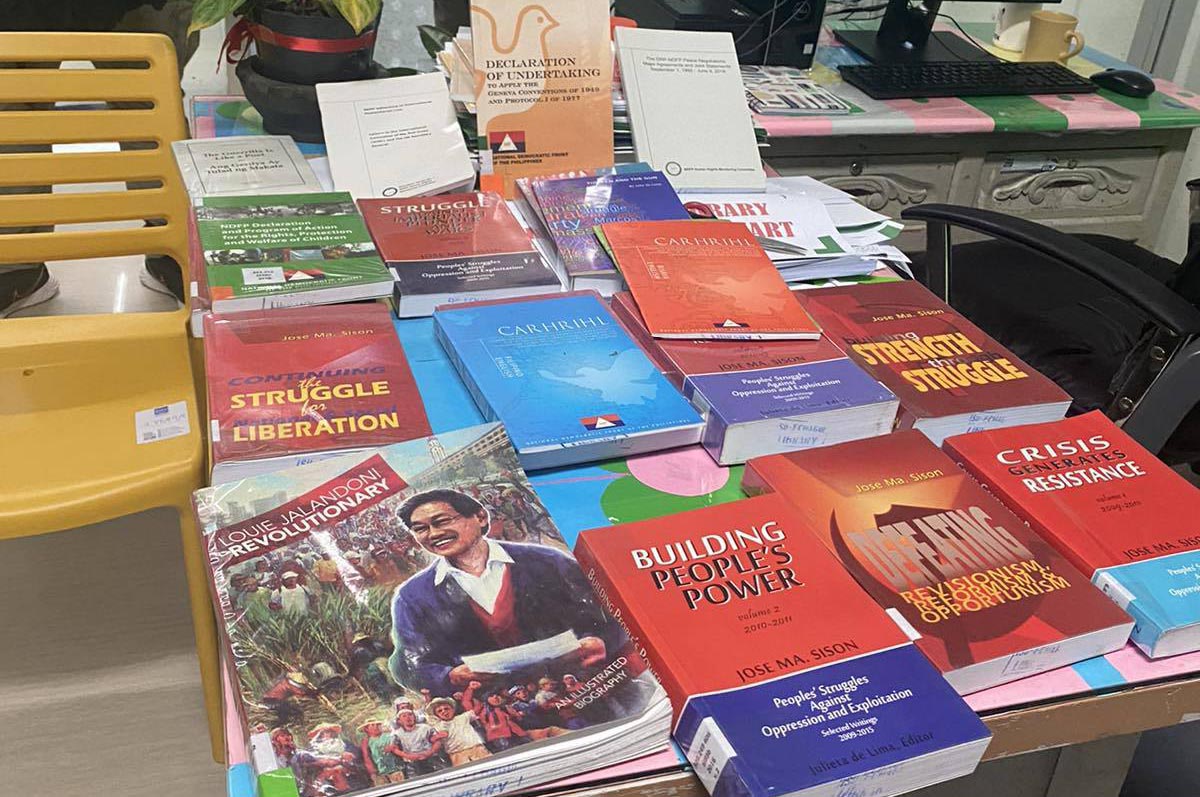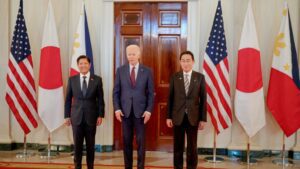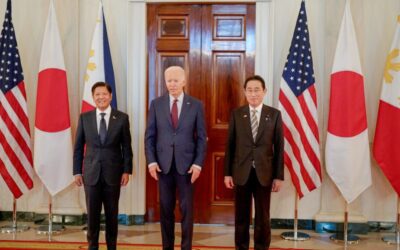By SHERWIN DE VERA
www.nordis.net
BAGUIO CITY — Youth leaders and a prominent Baguio educator criticized the recent memorandum released by the Commission on Higher Education-Cordillera Administrative Region (CHED-CAR) urging colleges and universities in the region to remove “subversive” materials from their libraries and online repositories.
On October 21, CHED-CAR Director Demetrio Anduyan, Jr. issued Regional Memorandum 113, Series 2021, directing school officials to surrender the “subversive” materials to the National Intelligence Coordinating Agency (NICA). The memo defined subversive materials as “literatures, references, publications, resources, and items that contain pervasive ideologies of the Communist-Terrorist Groups (CTGs).”
The memo explained that available data and information affects a person’s consciousness, and when “left unprocessed and unguarded,” it may “radicalize the mind.” According to Anduyan, it is a moral obligation to prevent students from exposure to “peace-detrimental ideologies that could turn them subversive and become communist-terrorist.”
The directive is part of the actions conceived by the Cordillera Regional Task Force-End Local Communist Armed Conflict (RTF-ELCAC) during its September 22 meeting.
Former University of the Cordilleras President Ray Salvosa said the issuance infringes on academic freedom.
“To me, these [materials] are important because this is how you learn. This is how you compare; this is how you act — you analyze issues, you get exposed to everything,” he said.
As an activist that lived through Martial Law, he recalled that Marcos employed a similar censorship measure.
The former UC president stressed that authorities should be presenting all sides in the academe, especially to the students. He pointed out that there should be no limits in the search for truth.
“When an institution decides what you can and cannot read, that is the same thing as telling you what you can or cannot think about,” he said.
Salvosa, a professor of political science, said it would be difficult to understand political philosophy without teaching Karl Marx’s Das Kapital, the books of Vladimir Lenin, Mao Zedong, and those written by Jose Maria Sison in the Philippines.
“(T)he reason why we have an education system [is that the individual] has to be able to think for himself: what is true, what is right, what is wrong. And [these] are the reasons why [what you can read] in these critical times is important,” he added.
Not surprising
“Disappointing but not surprising,” was how University of the Philippines Baguio Student Council chairperson Cheska Kapunan reacted to CHED-CAR’s order.
She recalled that the office also invited them to a youth peace seminar that turned out to be a red-tagging forum of the RTF-ELCAC. Speakers in the activity demonize the works of Marx, Lenin, and Mao, claiming that their contents “poisons the minds of the youth.”
Even without naming the books and materials, Kapunan believes the commission’s directive pertains to the same works mentioned by the anti-communist task force, including those authored by local thinkers like Sison.
“Students from the field ng social sciences [study these materials] because it helps us [develop] a comprehensive understanding of the world. These should not be prohibited,” she added.
She underscored that learning institutions should have the freedom “to pursue knowledge without fear of repression or punitive action.”
“Students should have the freedom to explore different perspectives, ask questions, and formulate solutions. Censorship, book-purging, and the hampering of critical thinking has no place in the university,” Kapunan added.
Not once, not twice
“Banning these books aims to spite fear, and is reminiscent of the Martial Law censorship to inculcate state propaganda that the mention of human rights and social reform are ‘terrorism’,” said Kabataan Party-list Cordillera Coordinator Louise Montenegro.
She said the memorandum marks “strike three” for CHED-CAR, citing the agency’s earlier activities that received widespread criticisms from youth and human rights groups.
Earlier, CHED-CAR came under fire for organizing a forum with the Cordillera RTF-ELCAC that turned into a red-tagging session, traumatizing students who participated in the activity. The office again drew criticism after inviting Sandro Marcos, the grandson of the late dictator Ferdinand Marcos, Sr., to be an “inspirational speaker” in a youth seminar.
“(N)ow, this Nazi-style purge of ‘subversive books’ in schools… It is an insult to the academic community, an assault to academic freedom, and the right to holistic learning from different schools of thought,” Montenegro said.
The Kabataan Party-list leader stressed that contrary to what CHED-CAR’s memorandum wants to paint, students could think and process information for themselves and not easily swayed.
“Removing these books only fuels terrorist-tagging of critical students and organizations, and we urge CHED-CAR and involved agencies to focus instead on the safe reopening of face-to-face classes,” she said.
Last month, Kalinga State University in Tabuk City removed publications related to the peace talks between the Philippine government and the National Democratic Front of the Philippines (NDFP) from its library at the behest of the military and the military, local ELCAC body. Two other state universities, the Isabela State University and Aklan State University, made similar steps in cooperation with members of the government’s security agencies.
Nazi-style censorship
Salvosa said banning materials that the government deems as “subversive” is similar to the Nazi book burning. “This is an issue of censorship,” he said, reminding the public that “it was not long before the regime that started burning books ended burning people.”
When the Nazis took control of Germany in May 1933, they pillaged public libraries, universities, and bookshops for materials written by “subversive” authors. After the destruction of books came the purging of the individuals on the Nazi’s blacklist.
Different groups have made the same comparison after the three state universities removed learning materials from their libraries, including the Comprehensive Agreement on Respect for Human Rights and International Humanitarian Law (CARHRIHL).
Signed on March 16, 1998, the international community hailed CARHRIHL as a landmark agreement and an outstanding achievement of the GRP-NDFP peace negotiations.
Other books removed from the libraries were the NDFP’s Declaration of Undertaking of the Geneva Conventions of 1949 and Protocol 1 of 1977, the Declaration and Program of Action for the Rights, Protection, and Welfare of Children, and compilations of significant agreements, joint statements between the GRP-NDFP from September 1, 1980 – June 2018, and essays of NDFP chief political consultant Jose Maria Sison, among others.
The group Academics Unite for Democracy and Human Rights launched an online signature campaign on October 2 against what it considers as “an attack on the very heart of the University itself.”
“As the government further escalates its campaign, the attack on academic freedom has recently taken on another extremely palpable and ominous form. Books and the libraries which house them have now become targets,” the petition said.
The Citizens’ Alliance for Just Peace (CAJP) also expressed concern that removing peace talks materials from schools would cultivate “a harmful mindset in which peace negotiations as a means to end the armed conflict is considered anathema.”
The group said that expunging publications and essays on the social roots of the armed conflict is reminiscent of the banning of Jose Rizal’s political novels by the church and Spanish colonial government.
“In the guise of “protecting youth and students from being deceived and recruited by communists,” the NTF-ELCAC is actually stifling critical thought and open-minded study into the socio-economic roots of armed conflict,” the CAJP said. # nordis.net










0 Comments